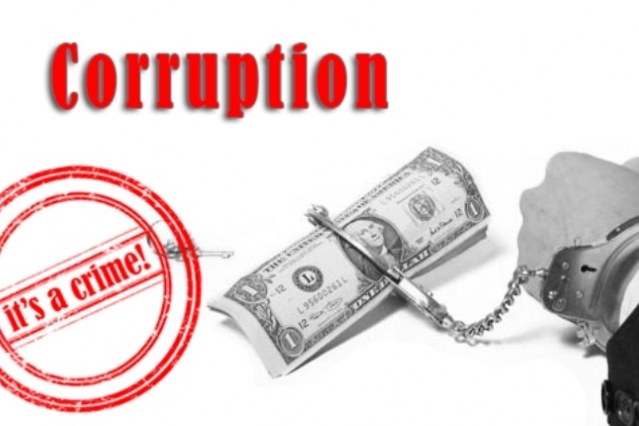


 The purpose of this policy document is to demonstrate the necessity of establishing Independent Anti-Corruption Agency for eradication of the shortfalls revealed in the existing system of fighting against corruption in Georgia. „Transparency International – Georgia” raised this issue in 2014. However, the Government of Georgia took different path and conferred the function to fight against corruption to the State Security Service (SSS). The problem analysis given in the document reveals the ineffectiveness of this decision.
The purpose of this policy document is to demonstrate the necessity of establishing Independent Anti-Corruption Agency for eradication of the shortfalls revealed in the existing system of fighting against corruption in Georgia. „Transparency International – Georgia” raised this issue in 2014. However, the Government of Georgia took different path and conferred the function to fight against corruption to the State Security Service (SSS). The problem analysis given in the document reveals the ineffectiveness of this decision.
Georgia has achieved significant progress in fighting against corruption over the past two decades. According to the open governance and corruption perception indexes, it has become one of the leading countries in the region and is often indicated as an example of good practice on various forums or conferences. Georgia has an ambition to become exemplary country in fighting against corruption not only regionally but also globally.
Improvement of the mechanisms for prevention and fighting against corruption is all the more important giving the fact that Georgia is implementing Association Agenda with EU and in 2018 the country will become the Chair of the Open Government Partnership (OGP); the partnership, that prioritizes fighting against corruption in one of its thematic directions.
Constant progressive workis inevitable for the eradication of corruption. Despite the successful steps taken for fighting against corruption high level and complex corruption still represents the significant challenge for Georgia. This issue is also highlighted in the OECD-ACN and GRECO reports.
In the recent history of Georgia the cases of detection of complex (i.e. high level) corruption offences by the acting government is in fact non-existent. Neither do the investigative authorities take appropriate measures to respond the cases identified by the other actors (journalists, CSOs). High-level corruption crimes are revealed only after the governments are changed. However, procedural violations during the investigations of these crimes raise concerns of political motivation. These practices negatively influence over public trust on the activities of government conducted for fighting against corruption.
Challenges of the agencies fighting against corruption
In this document the challenges in the institutions fighting against corruption (SSS, Prosecution Service of Georgia, the Ministry of Justice of Georgia, etc.) are analyzed in conjunction with the international standards.
The problems related to the institutions fighting against corruption:
- Lack of independency and freedom from political influence;
- Lack of public trust (access to information, openness standards);
- Lack of accountability and transparency;
- Lack of material resources and specialized staff.
The independency of the institutions fighting against corruption is guarantee for the efficiency for fighting against corruption, high standard of accountability and transparency, resulting in the high level of public trust.Lithuania represents good example for highlighting the above mentioned, and is analyzed in the document as the best practice. The study of practice of Georgiaნ anticorruption agencies reveals that independency thereof is the most challenging issue. Moreover, the latest amendment implemented by the Government of Georgia in 2015 conferring the SSS with the function to fight against corruption is evaluated as dubious reform. Hence, most efficient way to address current situation and fix the problems related to the anticorruption agencies is establishment of Independent Anti-Corruption Agency.
The recommendations of IDFI is to:
I. Establish Independent Anti-Corruption Agency;
II. Start discussions on the establishing Independent Anti-Corruption Agency within the framework of Open Government Georgia’s Forum;
III. The functions of Independent Anti-Corruption Agency should be:
- Prevention of corruption;
- Fighting against corruption;
- Elaboration of anticorruption policy;
- Monitoring of asset declarations;
- Whistleblower protection;
- Financial monitoring of political parties;
- Planning of awareness rising and education policy on anticorruption issues.
The presented policy document identifies the challenges of the work of institutions fighting against corruption in relation to the general as well as international standards. The document covers basic international conventions and recommendations given to Georgia by the international organizations. The final part of the document describes Lithuanian model as the best practice. Followed by the recommendations based on the analysis of the international practice, standards and statements.